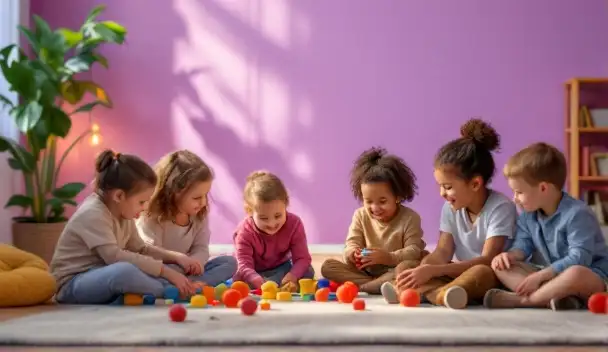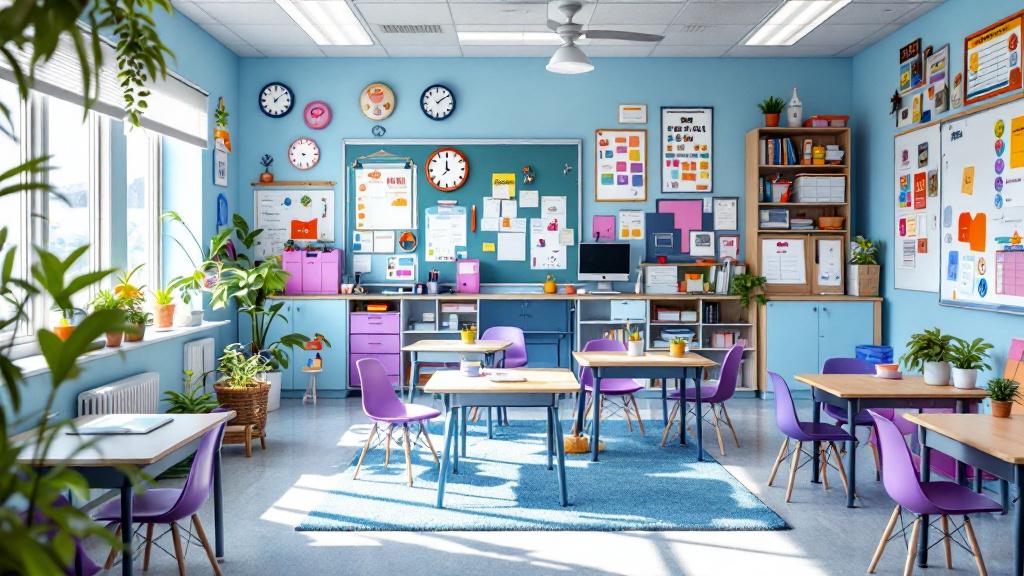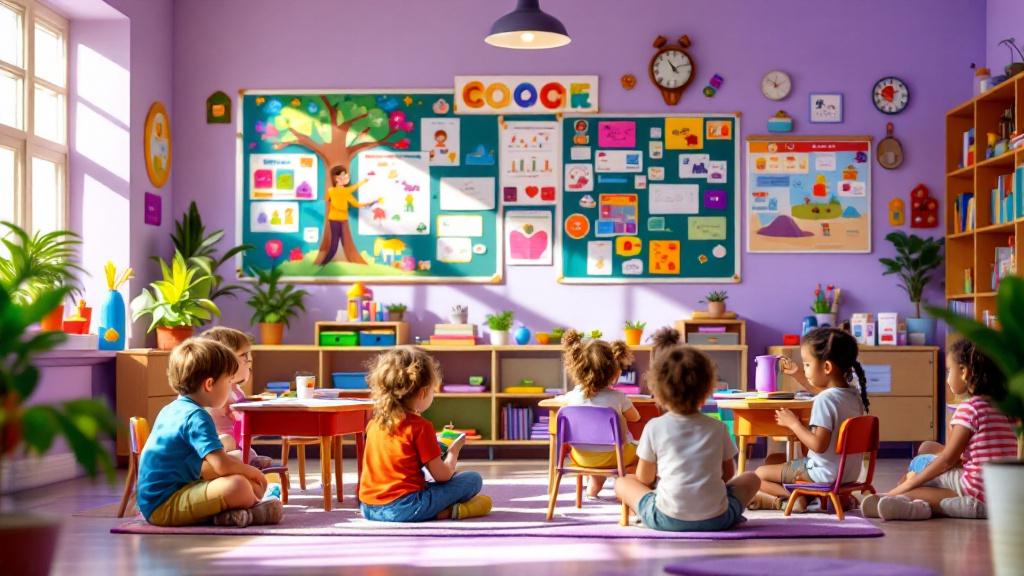Understanding the Impact of ABA Therapy
Applied Behavior Analysis (ABA) therapy is a scientifically validated method widely utilized to support children with autism spectrum disorder (ASD) and various learning challenges. Its core aim is to foster independence, confidence, and essential life skills through personalized, positive reinforcement strategies. By establishing structured routines and targeted interventions, ABA creates a supportive environment where children can thrive both socially and emotionally.
The Foundations of Confidence in ABA Therapy

Why is building confidence in children so important within ABA therapy?
Building confidence through ABA therapy plays a vital role in helping children develop essential social, communication, and emotional skills. When children feel secure in their abilities, they are more willing to explore new activities and interact positively with others. This sense of self-assurance fosters independence and motivates children to apply their skills in various settings.
ABA therapy emphasizes positive reinforcement, which rewards children for their achievements, gradually boosting their self-esteem. For example, when a child successfully completes a task like dressing themselves or sharing toys, they receive praise or access to preferred activities. These rewards encourage continued effort and learning.
Structured routines are another cornerstone. Clear, predictable schedules help children understand what to expect, reducing anxiety and making new skills more accessible. Routine also provides stability, enabling children to internalize behaviors and routines essential for daily life.
Moreover, ABA therapy adopts a personalized approach by tailoring goals to each child's unique needs and interests. This customization ensures that children experience success and growth at their own pace, reinforcing their belief in their abilities.
How does ABA therapy promote self-esteem and independence?
The approach fosters independence by teaching practical life skills such as brushing teeth, preparing simple meals, and managing emotions. Breaking tasks into manageable steps allows children to experience success repeatedly, reinforcing their confidence.
Using positive reinforcement like praise or access to preferred activities, ABA therapy encourages children to master new skills. As children become more independent, they recognize their own competence, which further enhances their self-esteem.
Additionally, the development of communication skills—whether verbal, non-verbal, or through alternative methods—reduces frustration and empowers children to express themselves confidently. Improved social skills, such as making eye contact or responding to cues, help children participate more fully in social interactions, increasing their confidence.
Creating a safe environment for confidence growth
A secure, predictable environment is critical for children to feel in control and willing to take on challenges. ABA therapy’s structured routines contribute greatly to this, offering children clear expectations and a sense of stability.
Children are encouraged to practice skills in a safe space, where mistakes are viewed as part of learning rather than failure. This positive, supportive atmosphere motivates children to persist and develop resilience.
Parents are integral to this process, especially when involved in training and routines at home. Their support ensures that skills learned in therapy transfer to everyday life, reinforcing confidence across various environments.
Long-term benefits of confidence built through ABA
As children gain confidence, they become better equipped to handle new challenges independently. These skills translate into improved performance in school, better peer relationships, and greater success in future work environments.
In summary, ABA therapy is a comprehensive approach that nurtures confidence by creating an engaging, supportive setting marked by positive reinforcement, personalized goals, and consistent routines. This foundation of confidence encourages children to become self-reliant, emotionally resilient, and socially engaged, paving the way for lifelong success.
Enhancing Social and Communication Skills

How does ABA therapy contribute to enhancing social skills, communication, and emotional well-being in children?
ABA therapy plays a crucial role in improving social interactions, communication, and emotional health. This approach systematically teaches children various social behaviors, such as turn-taking, sharing, respecting social cues, and engaging in reciprocal conversations. Through personalized programs, children learn these skills via techniques like modeling, reinforcement, chaining, and shaping, which help solidify learning.
An essential part of ABA involves practicing these skills in real-life or natural settings. This can involve role-playing exercises, social stories, and social skills groups, all designed to make learning relevant and engaging. Video modeling is also used to demonstrate appropriate behaviors, allowing children to observe and imitate effective social responses. Such methods help children apply skills across different situations, promoting generalization and boosting confidence.
Collaboration with parents and educators ensures that the skills learned during therapy are reinforced consistently at home and in school environments. ABA therapists also track progress meticulously through data collection, adjusting strategies as needed.
As a result, children gain confidence and develop positive relationships, which significantly enhance emotional well-being. They become more comfortable participating in social activities, handling challenging emotions effectively, and maintaining meaningful connections. This comprehensive approach fosters lifelong social competence, emotional stability, and the ability to navigate diverse social landscapes.
| Aspect | Description | Additional Details |
|---|---|---|
| Social behaviors taught | Turn-taking, sharing, respecting cues, emotional recognition | Via modeling, social stories, peer interactions |
| Communication methods | Verbal, nonverbal, augmentative communication | Uses play, gestures, technology for varied needs |
| Practice environments | Natural settings, role play, social groups | Reinforces generalization and real-world application |
| Collaboration | Family and school involvement | Ensures ongoing reinforcement and consistency |
| Data tracking | Monitoring progress and adjusting plans | Ensures personalized and effective intervention |
What strategies does ABA therapy use to foster social skills and emotional well-being?
ABA therapy employs a mix of methods like modeling, chaining, reinforcement, and social stories to teach children social and emotional skills. Role playing and video modeling help children practice social exchanges in a safe setting. Reinforcement, including praise and access to preferred activities, encourages mastery and confidence.
By gradually increasing complexity, children learn to recognize emotions, respond appropriately, and develop empathy. Incorporating these skills into daily routines helps children feel more secure and competent in social settings. Over time, these interventions improve their comfort, reduce social anxiety, and provide a strong foundation for healthy social and emotional development.
Techniques That Foster Growth
How do ABA techniques contribute to confidence and skills development in children?
ABA (Applied Behavior Analysis) techniques are fundamental in helping children learn new behaviors and enhance their existing skills. They include methods such as modeling, shaping, chaining, and reinforcement. These techniques are carefully designed to promote positive behavior changes and skill acquisition.
Modeling involves demonstrating desired behaviors so children can imitate them. Shaping gradually reinforces successive approximations toward a target behavior, making complex skills more approachable. Chaining breaks down multi-step tasks into smaller, manageable parts, helping children learn routines like dressing or preparing simple meals.
Reinforcement, especially positive reinforcement, is crucial in ABA. It rewards specific achievements with praise, toys, or access to preferred activities, thereby boosting self-esteem and motivation. As children practice and master skills, their confidence grows.
Tools like social narratives, visual supports, and role-play exercises are effective in building confidence. Social narratives help children understand social situations and expectations, reducing anxiety. Visual supports clarify routines and steps, helping children follow instructions independently. Role-playing allows children to practice social interactions in a safe environment, fostering readiness for real-life conversations.
How does positive reinforcement boost self-esteem?
Positive reinforcement rewards children for their progress, making them feel accomplished. Recognizing achievements encourages mastery, which directly contributes to higher self-esteem. When children see that their efforts are acknowledged and rewarded, they become more motivated to learn and try new skills.
The importance of tools in developing social confidence
Practicing skills through varied tools allows children to generalize learned behaviors across different contexts. Social narratives prepare them for social interactions, visual supports aid comprehension, and role-plays simulate real-life situations. These strategies help children practice confidently, enabling smoother social exchanges and reducing social anxiety.
Customized approaches and long-term growth
Every child has unique needs, so ABA therapy customizes goals for individual skill development. This tailored approach ensures relevant and achievable targets, fostering a sense of competence and confidence.
When implemented intensely (25-40 hours weekly), ABA can lead to remarkable improvements in communication, social skills, and emotional regulation. Children learn to apply these skills across settings, promoting independence.
Promoting generalization and independence
Generalization refers to applying learned skills in different environments, which is vital for long-term independence. Encouraging children to practice skills beyond the therapy setting boosts their flexibility and social confidence.
This comprehensive approach, bolstered by parental involvement—who can attend training and incorporate skills into daily routines—ensures children develop confidence that lasts. By combining structured routines, positive reinforcement, and personalized treatment, ABA therapy creates a secure foundation from which children can confidently navigate their world.
The Power of Generalization in Building Confidence

Why is generalization important in ABA therapy for building confidence in children?
In ABA therapy, the concept of generalization is vital for helping children apply what they learn in different settings beyond the therapy environment. This transferability of skills is essential because it ensures that children can use their new abilities in everyday situations, such as at home, school, or in social venues.
Generalization supports the development of confidence by encouraging children to independently utilize their skills across various contexts. When children master a skill in a controlled setting and then confidently use it elsewhere, they experience a sense of accomplishment and self-efficacy.
Furthermore, the process of generalization aids in long-term skill retention and enhances social adaptability. As children practice skills in multiple environments, they become more comfortable and less anxious about using these skills in unfamiliar or new situations. This repeated exposure and reinforcement foster a resilient sense of independence.
Effective strategies to facilitate generalization include practicing skills in different settings and involving caregivers or teachers in the training process. These approaches help children learn to adapt their skills flexibly, which is crucial for real-world success.
How does practicing skills in multiple environments and involving caregivers strengthen transferability?
Practicing skills in diverse environments exposes children to various stimuli and social cues, which helps solidify their learning. When caregivers, family members, or teachers participate in ABA sessions, they reinforce these skills at home or in school, creating consistency.
Caregiver involvement also boosts the child's confidence as they see support from trusted individuals. It encourages them to try new activities, knowing they have backup and guidance, fostering a growth mindset.
Training caregivers to implement ABA strategies ensures that the child's learning does not remain confined to therapy sessions but extends to everyday routines. This cohesive approach accelerates mastery and promotes autonomous use of skills.
What are the benefits of effective generalization strategies for skill retention and social adaptability?
When generalization strategies are effectively employed, children are more likely to retain their skills over time. They become capable of using their skills across different scenarios, which prevents regression and supports continuous growth.
Moreover, practicing in various settings enhances social skills, such as sharing, making eye contact, or responding to social cues, which are critical for successful interactions.
Children who can adapt skills to diverse cultural and social environments develop greater social confidence and are better prepared to navigate complex social landscapes. This adaptability increases their overall independence and quality of life.
| Aspect | Explanation | Practical Example |
|---|---|---|
| Environments | Practicing skills in different settings | implementing social skills learned in therapy at school and community parks |
| Caregiver Participation | Caregivers reinforce skills daily | family members using prompts to encourage communication |
| Skill Transfer | Applying skills across varied scenarios | using self-care routines learned in therapy at new places like sports clubs |
| Outcome | Increased confidence and independence | children confidently initiating conversations or managing daily tasks without assistance |
How does generalization support children with ASD in feeling more competent?
By mastering skills in multiple contexts, children develop a stronger sense of competence and independence. This success boosts their self-confidence because they realize they can handle diverse challenges.
Achieving consistent application of skills reduces anxiety and fear of failure, paving the way for children to explore new activities and social roles with assurance.
Parents and teachers play a critical role in supporting generalization, helping children see the practical value of their skills, which enhances motivation and engagement.
Overall, generalization in ABA leads to meaningful, long-lasting improvements in a child's ability to navigate the world confidently and comfortably.
Benefits of ABA for Whole-Child Development

How does ABA therapy support overall development including emotional regulation, social participation, and independence?
Applied Behavior Analysis (ABA) therapy is a comprehensive approach that significantly enhances multiple facets of a child's growth. It not only targets specific skills but also promotes emotional well-being and social engagement. By helping children manage their emotions through structured routines and positive reinforcement, ABA creates a stable environment that encourages emotional regulation. Children learn to respond better to challenges and develop resilience.
In terms of social participation, ABA strategies focus on strengthening social interactions and peer communication. Skills such as making eye contact, sharing, taking turns, and understanding social cues are explicitly taught and practiced. This improves children's ability to engage with others confidently, reducing social anxiety and fostering meaningful relationships.
Independence is a core goal of ABA therapy, which is achieved through teaching daily living skills like dressing, brushing teeth, or preparing simple meals. By breaking these tasks into manageable steps and practicing them consistently, children gain competence and confidence. The development of adaptive skills supports their transition to more complex activities and promotes a sense of self-sufficiency.
How do personalized treatment plans foster confidence and align with individual interests?
A significant feature of ABA therapy is its emphasis on individualization. Treatment plans are tailored to each child's unique needs, interests, and developmental level. Goals are set based on detailed assessments, ensuring that skills targeted are relevant and engaging for the child. This personalized approach increases motivation and ensures that progress feels attainable.
Moreover, by incorporating a child's preferences and strengths, ABA plans foster a sense of ownership and pride in their achievements. When children see meaningful improvements aligned with their interests, their confidence naturally grows.
What are the long-term benefits including success in school, relationships, and future employment?
Long-term engagement in ABA therapy, particularly with intensive programs that involve 25-40 hours per week, has been shown to yield impressive improvements. Children often develop stronger social skills, better communication abilities, and emotional resilience, all of which are vital beyond childhood.
These advancements translate to greater success in school by enabling children to participate actively, follow routines, and complete tasks independently. Improving social skills and emotional regulation support building and maintaining relationships with family, peers, and teachers.
Furthermore, the skills acquired through ABA lay a foundation for future employment opportunities. Self-management, problem-solving, and communication are crucial skills valued in the workplace. Ultimately, ABA therapy helps children become more adaptable, confident, and capable in various settings, setting the stage for a successful and autonomous adult life.
| Aspect | Developmental Focus | Outcomes | Additional Details |
|---|---|---|---|
| Emotional Regulation | Manage emotions, reduce anxiety | Increased resilience, better frustration management | Creating routine stability and positive reinforcement |
| Social Participation | Interaction skills, peer engagement | Improved social confidence and participation | Targeted practice in social cues and sharing |
| Independence | Daily living, communication | Enhanced self-sufficiency and self-esteem | Breaking tasks into manageable steps |
| Personalization | Aligns goals with interests | Higher motivation, goal achievement | Custom assessments, family involvement |
| Long-Term Impact | Future success | Better school performance, relationships, employment | Generalization of skills in various environments |
ABA therapy's adaptability and evidence-based strategies make it a vital approach in supporting children as they grow into confident, independent individuals. Its holistic focus ensures children are equipped with the skills necessary to navigate life successfully, fostering their overall confidence and development.
Fostering Growth for a Confident Future
ABA therapy plays a crucial role in nurturing confidence in children by equipping them with vital social, communication, and daily living skills within a structured, supportive environment. Techniques such as positive reinforcement, modeled behaviors, and extensive practice in multiple settings ensure that children not only master skills but also generalize them to real-world situations. As these children develop greater independence and emotional resilience, they become more prepared to face future challenges and opportunities with confidence. Engaging families and caregivers in the process further ensures the transfer and reinforcement of skills beyond therapy sessions. Ultimately, ABA therapy’s comprehensive approach fosters lifelong growth, helping children attain the self-assurance they need to succeed and thrive in all aspects of life.
References
- ABA Therapy: Building Independence and Confidence in Kids
- Building Confidence in Kids with ABA Therapy - ABA Therapist Jobs
- The Importance of Generalization in ABA - HANDS Center for Autism
- How ABA Therapy Builds Confidence in Children with Autism
- ABA Therapy for Leadership Skills: Empowering Children
- How ABA Therapy Builds Confidence in Children with Autism
- Building Confidence in Kids with ABA Therapy - ABA Therapist Jobs
- ABA Therapy: Building Independence and Confidence in Kids
- How ABA Therapy Helps With Social Skills
- Fostering Meaningful Connections: Social Skills Development





































































































